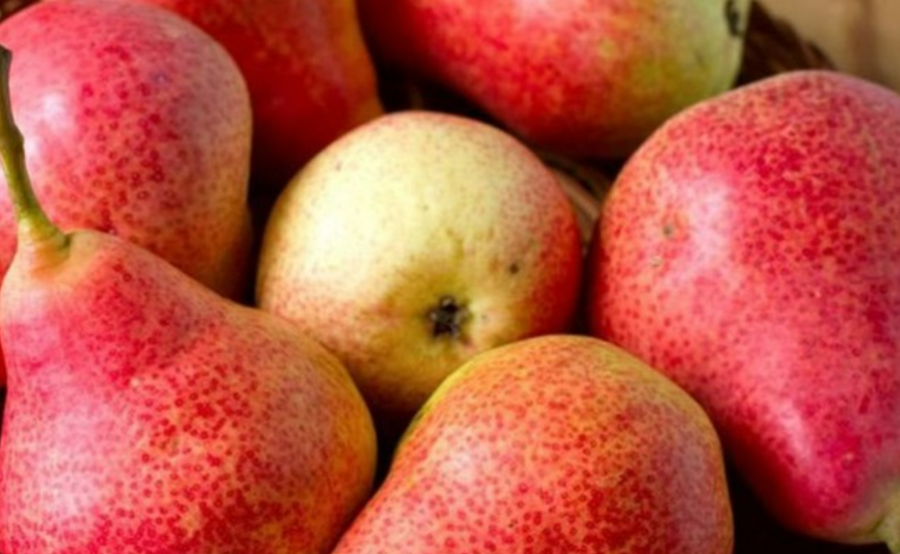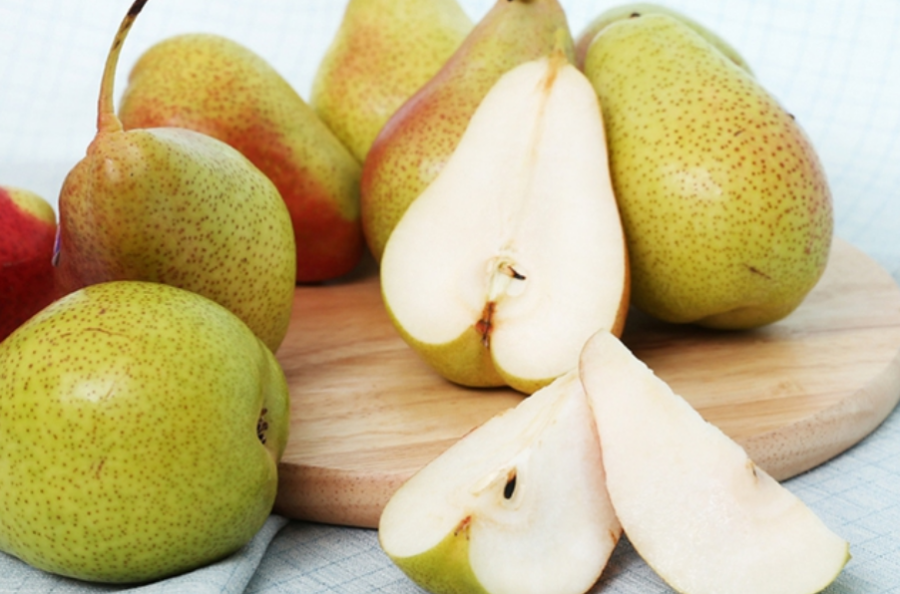Managed Blood Sugar Levels
Due to its mild sweetness, pears not only help diabetics curb sugar cravings but also offer various other beneficial effects.
According to nutrition experts, 100g of pears on average provide an abundance of essential nutrients, including calcium, fiber, potassium, protein, phosphorus, and vital vitamins such as A, B, and C.

Research reveals that for every 100g of pears, there are 0.5mg of iron, 86.5g of water, 0.2g of protein, 0.1g of fat, 11g of carbohydrates, 14mg of calcium, 13mg of phosphorus, 1.6g of fiber, 1mg of folic acid, vitamins P and C, beta carotene, and 0.2g of vitamin PP, among others.
Despite their carbohydrate content and subtle sweetness, pears boast an impressively low glycemic index (GI) of 38. This indicates that pear consumption does not lead to a sudden spike in blood sugar levels, making them a diabetes-friendly option.
Additionally, the fiber content in pears slows down the digestive process, affording your body more time to break down and absorb carbs. This mechanism can aid in regulating blood sugar levels and may contribute to preventing and managing diabetes.
Incorporating pears into your diet supplies diabetics with beneficial compounds like Anthocyanin, Vitamin C, Vitamin K, and Vitamin A, along with other antioxidants. These compounds help combat inflammation and oxidative cell stress, thereby minimizing the risk of diabetes-related complications involving inflammation and ulcers.
Furthermore, substances such as Zeaxanthin and Lutein, found in pears, are renowned for their eye health benefits, enhancing vision and mitigating diabetes-related eye issues.
Improved Digestion for Diabetics
The fiber content in pears promotes and regulates intestinal motility, supporting smooth digestive function. Consequently, it alleviates digestive concerns commonly faced by diabetics, including bloating, constipation, and gastrointestinal disorders.
Recommended Pear Consumption for Diabetics
Studies suggest that consuming pears five times a week can enhance insulin sensitivity and prevent type 2 diabetes complications.
Ideal times to eat pears: You can divide your daily pear intake into smaller portions and consume them during snack times, such as having 1-2 pear slices 30 minutes after breakfast and the remaining 2-3 slices during your afternoon snack.
While pears are beneficial for diabetics, moderation is key. It is recommended that diabetics consume approximately one pear per serving, equivalent to about 125g.
It is advisable to eat the whole fruit instead of drinking pear juice, as the latter increases sugar concentration while diminishing the essential fiber content.

Who Should Refrain from Eating Pears?
Individuals suffering from ailments such as cold, flu, stomach cold, or digestive disorders should avoid pears due to their cooling properties, which can exacerbate these conditions.
People with spleen and stomach deficiencies, external injuries, postpartum women, and infants under six months old are also advised to refrain from consuming pears to prevent potential harm to the spleen and stomach.
Foods to Avoid Combining with Pears
Do not eat pears with turnips: Turnips contain sulfuric acid cyanogens, while pears contain ketones. Combining these two foods can lead to the development of goiter and thyroid dysfunction due to the interaction between these compounds.
Avoid eating pears with amaranth: Mixing pears and amaranth can induce nausea and digestive disturbances.
Do not eat pears with goose meat: The high protein and fat content of goose meat, when combined with the cooling nature of pears, can overburden the kidneys, adversely affecting their function.
Additionally, substances like Zeaxanthin and Lutein, present in pears, are renowned for their positive impact on eye health, enhancing vision and mitigating diabetes-related eye complications.





































